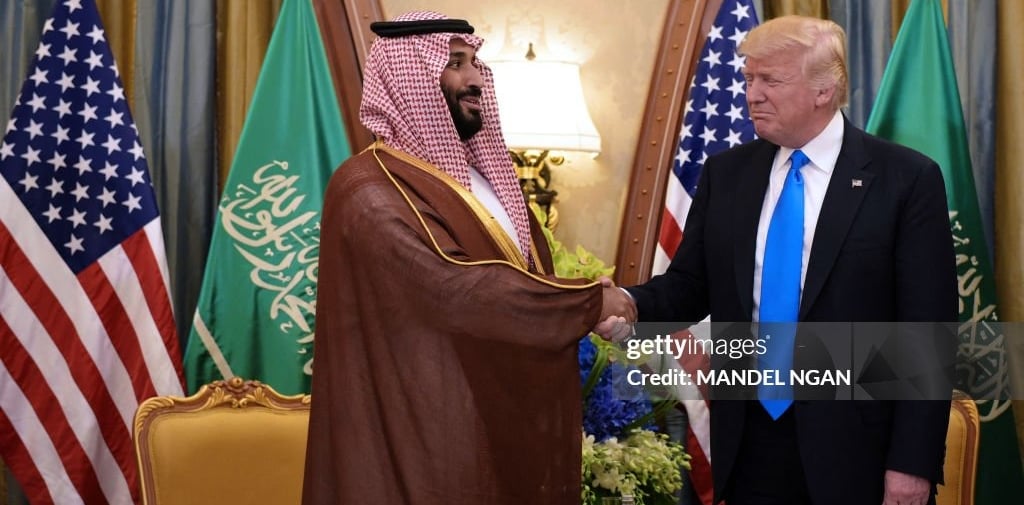Trump Criticizes Zelensky at Saudi-Led Conference, Urges Saudi Investment in U.S.
At a Saudi-led conference in Miami, Donald Trump criticized Ukraine’s President Zelensky, accused him of prolonging the war, and encouraged Saudi Arabia to invest $1 trillion in the U.S. Read more about the political and economic implications of his statements.
DAILY UPDATE
Naman Joshi
2/21/20255 min read


In a significant diplomatic development, former United States President Donald Trump publicly criticized Ukrainian President Volodymyr Zelensky at a high-profile Saudi-led conference held in Miami. The remarks, which questioned Zelensky’s intentions in the ongoing Russia-Ukraine conflict, have sparked speculation regarding Trump’s potential foreign policy direction should he reclaim the presidency. This event underscores the evolving global alliances and economic interests that continue to influence U.S. relations with its allies and adversaries.
Trump’s Criticism: A Diplomatic Confrontation
During the conference, which drew prominent figures such as Jared Kushner, Elon Musk, and senior Saudi officials, Trump accused Zelensky of prolonging the war with Russia for financial gain. He asserted that Ukraine’s leader had manipulated President Joe Biden into directing substantial financial aid to Ukraine under the guise of military assistance, thereby escalating tensions with Moscow.
In response to the Saudi-backed event, Donald Trump reiterated his skepticism regarding continued U.S. financial support for Ukraine. Throughout his political career, he has advocated for a more isolationist approach, prioritizing domestic economic growth over foreign entanglements. However, his statements at the event were perceived as a direct challenge to Washington’s established policy, raising concerns about the potential impact on NATO and European allies who remain steadfast in their commitment to Ukraine’s sovereignty.
Saudi Arabia’s Growing Influence in U.S. Politics
The location and sponsorship of the conference further complicate Trump’s statements. Saudi Arabia, a long-standing U.S. ally, has been expanding its geopolitical influence through investments in American businesses, technology, and infrastructure. Trump’s warm reception at the event reinforced the perception of his close ties with the Gulf state, which has also played a significant role in global energy markets and Middle Eastern diplomacy.
At the conference, Trump urged Saudi investors to commit $1 trillion in U.S. economic ventures, particularly in real estate and infrastructure. He commended the kingdom’s leadership, emphasizing the mutually beneficial relationship between the two nations. This outreach underscores Trump’s transactional approach to foreign relations, where economic incentives drive diplomatic engagements.
Ukraine’s Response: Zelensky’s Counterargument Naturally
Ukrainian officials did not take Trump’s remarks lightly. President Zelensky’s spokesperson responded by asserting that Ukraine’s struggle against Russian aggression is not a financial endeavor but a defense of sovereignty and democratic values. Zelensky himself indirectly addressed Trump’s claims, emphasizing the paramount importance of continued international support in resisting Russia’s invasion.
European leaders also expressed concern, cautioning that any diminution in U.S. support could embolden Russia and destabilize the broader region. NATO Secretary-General Jens Stoltenberg reaffirmed the alliance’s unwavering commitment to Ukraine, while German Chancellor Olaf Scholz underscored the potential consequences of altering U.S. foreign policy priorities.
Implications for the 2024 U.S. Presidential Election
Donald Trump’s criticism of Volodymyr Zelensky at the Saudi-led conference is likely to have substantial repercussions in the upcoming 2024 presidential election. His remarks underscore the stark contrast between his approach and the Biden administration’s unwavering support for Ukraine. For Republican voters, Trump’s stance may resonate with those who prioritize economic concerns over foreign conflicts, reinforcing his “America First” agenda.
However, his statements also risk alienating key swing voters and defense hawks within the Republican Party who perceive U.S. global leadership as paramount. Political analysts suggest that Trump’s rhetoric could either solidify his base or create new divisions within the GOP, particularly among those who advocate for a robust stance against Russian aggression.
Trump’s Energy Policy: A Factor in His Criticism?
Another significant aspect of Trump’s remarks is their intersection with energy policy. The former president has long advocated for lifting restrictions on U.S. oil production, asserting that energy independence would reduce reliance on foreign entities. His speech at the Saudi-backed conference included a promise to expand American oil production, despite Saudi Arabia’s vested interest in maintaining global oil market stability.
Critics contend that President Trump’s stance on Ukraine may be partially influenced by energy politics. Ukraine has played a strategic role in European energy security, particularly in countering Russian influence. By downplaying Ukraine’s significance, Trump could be signaling a shift towards a more business-oriented relationship with energy-producing nations, such as Saudi Arabia and Russia.
U.S.-Russia Relations: Implications of Trump’s Remarks
Trump’s statements at the conference also raise questions about his future approach to U.S.-Russia relations. Throughout his presidency, Trump faced criticism for his perceived leniency towards Russian President Vladimir Putin. His latest remarks further fuel speculation that a potential second Trump administration might adopt a less confrontational stance on Russia, potentially reshaping U.S. foreign policy priorities.
Russian officials have already seized upon Trump’s comments, employing them as evidence of Western divisions. The Kremlin’s spokesperson, Dmitry Peskov, asserted that Trump’s criticism of Zelensky was a “realistic assessment” of the war’s trajectory, further fueling debates about how Russia might exploit such rhetoric to its advantage.
Saudi Arabia’s Strategic Positioning
Saudi Arabia’s hosting and support of the conference highlight its burgeoning geopolitical influence. The kingdom has increasingly positioned itself as a mediator in global conflicts, facilitating dialogues between adversarial powers while securing economic partnerships. Historically, the U.S.-Saudi relationship has been centered on energy and security cooperation. However, under the leadership of Crown Prince Mohammed bin Salman, the Gulf state has expanded its influence into global financial markets, technology, and infrastructure projects.
Donald Trump’s overtures to Saudi Arabia suggest that he perceives the Gulf nation as a pivotal player in his potential second-term strategy. By strengthening economic ties with Riyadh, Trump reinforces his pragmatic approach to diplomacy, which prioritizes business deals over traditional alliances.
Reactions from Washington
Trump’s remarks have elicited diverse reactions from U.S. lawmakers. While some Republicans commended his stance, asserting that it reflects growing concerns over excessive foreign aid spending, others cautioned that such rhetoric could compromise U.S. credibility on the global stage. Democratic leaders were prompt to condemn Trump’s criticism of Zelensky, with Senator Chuck Schumer labeling it “reckless and perilous.”
The Biden administration has reaffirmed its unwavering commitment to Ukraine, with Secretary of State Antony Blinken affirming that U.S. support for Kyiv remains steadfast. In response to Trump’s remarks at the Saudi-led conference, the White House has downplayed their significance, attributing them to Trump’s broader election strategy rather than a substantive policy shift.
Conclusion: A Turning Point in U.S. Foreign Policy?
Trump’s criticism of Zelensky at the Saudi-led conference represents a pivotal juncture in the evolving U.S. foreign policy landscape. His remarks imply that a second Trump presidency could witness substantial alterations in America’s global alliances, particularly concerning Ukraine, Russia, and Saudi Arabia.
As the 2024 election draws near, Trump’s statements serve as a barometer for the perceptions of Republican voters and policymakers regarding America’s role in international conflicts. Whether his stance bolsters or diminishes his candidacy remains uncertain, but one aspect is certain: the world is closely monitoring the unfolding of U.S. political dynamics.
Amidst escalating global tensions, the pertinent question arises: will Trump’s approach reshape the international order, or will it exacerbate divisions within the United States and among its allies? Only time will provide the definitive answer.
Trump Saudi conference, Trump criticizes Zelensky, Trump Ukraine war, Saudi investment in U.S., Trump Biden Ukraine, Trump Russia war, Trump foreign policy
